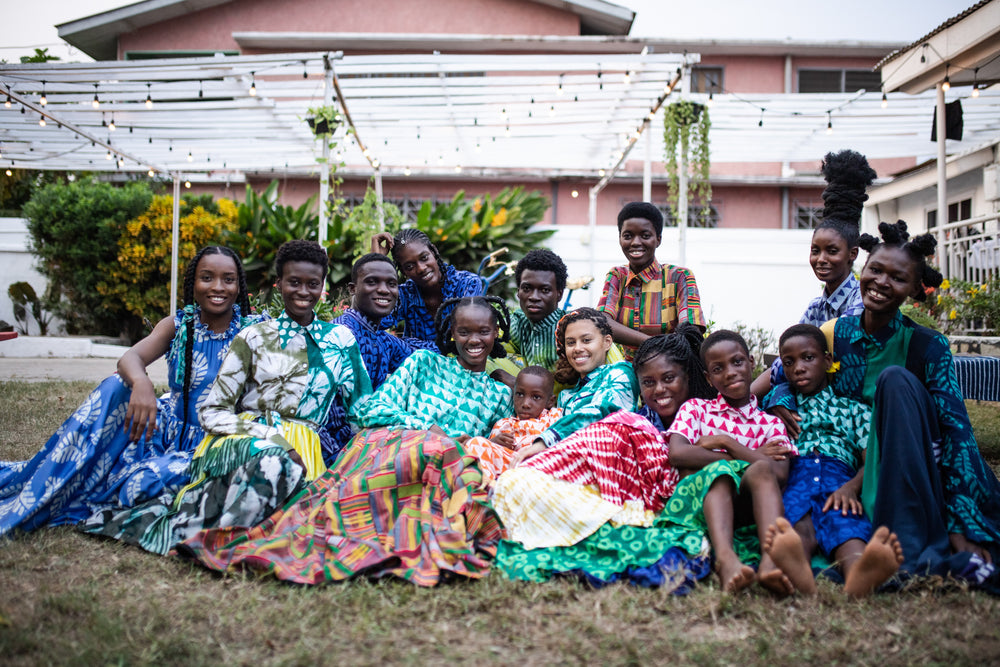Globetrotter Magazine Features S189

There's something good, sustainable, even wise about respecting the value of what's come before in creativity and culture. Think, perhaps, of the old ways of dying indigo and shibori and batik patterns, the creation of natural textiles pulled from the ground in ways that are kind to the ground, the tracing of movements and evolutions of design and fashion across history.
There are brands that embody and work for that respect, like Studio One Eighty Nine. Their mantra and motto?
"Everything you do, from what you buy to how you dress, has an impact. We believe in the power of collaboration with artisanal communities and rising through fashion. Look good, feel good, and do good - that's as good as it gets."
The eco-friendly, socially conscious company is making quiet but steady waves in the fashion world, and their responsible platform continues to grow. It's a brand that's clearly been built on a foundation of friendship, trust and a deep respect for cultures and arts with long and sometimes ancient histories. Founded by Abrima Erwiah, a former Bottega Veneta communications exec, and her partner Rosario Dawson (yes, that one), Studio One Eighty Nine relies on traditional textiles and techniques in the creation of a brand that's thoroughly modern, and thoroughly artisan. They're proving - to those of us who are clearly a little behind the curve - that ethical fashion doesn't mean compromising on style. And in the case of Studio One Eighty, it might even mean upping your game.
Studio One Eighty Nine has its own private label, producing lines with strong elements of African traditional (or African-inspired) techniques, while supporting and promoting other brands. Their private-label is chock full of indigo, batik, and hand-painted items, and handmade baskets and jewelry. The pair are working to increase the market share of the fashion industry for producers and designers across the continent, bringing artisans and marginalized communities into the fold and promoting traditional techniques. That's what drives them, Abrima says.
“We believe in the growth of the African fashion industry, in particular in economies like Nigeria and Ghana, which is why we set up Studio One Eighty Nine in 2013. It was all about using fashion as an agent for social change and really promoting the creativity that exists on the continent.”

Abrima and Rosario, who've been friends for ages, traveled through Kenya, Burundi, Rwanda and Congo in 2011 with V-Day, the global movement to end violence against women. That was the catalyst for what came next: the setting up of this multifaceted platform that's working through the entire supply chain, creating jobs, supporting artists and getting beautiful, unmatched pieces to you and me.
We met up with Abrima - in Lagos for a runway show at Lagos Fashion & Design Week - at the Maison Fahrenheit rooftop for a quick chat about the brand and its solid mission.
Studio One Eighty Nine's interest and process begins long before the final birth of each piece. Take their lush, Indigo Patchwork Midi Kimono, with its deep ocean of blues and textures: the company collaborates with communities in Mali to create the textiles from scratch, with indigo dyes extracted directly from plants. Those fabrics are then transported to Ghana, where Studio One Eighty Nine tailors and seamstresses work to create the fabric.
"We try to achieve harmony by making this beautiful patchwork," Abrima says. "Indigo is like the natural denim, and you find it in all parts of the world. We have indigo in Ghana, Japan, Nigeria. Just like batik, in Indonesia and India [and elsewhere]. We try to show how the world is so much more similar than it is different, and how so many different cultures have taken from different places to create something international. We do that with our collections."
It's those traditional techniques and styles mixed with modern sensibilities that make for pieces that should appeal to both the international and local consumer, Abrima says. And along the way, there’s economic empowerment, skills training and education for their partners and collaborators - from farmers and artisans to graphic designers and stylists.
"We work in disadvantaged communities and we try to bring people into the value chain," Abrima says. "It's process of collaboration. We grow together, our artisans challenge us. And in that same spirit we try to work with people in all parts of the world."
In a recent photo shoot they called the "Family Album," Studio One Eighty Nine drew from the talents of like-minded friends. The collection was shot by Globetrotter favorite Delphine Diallo, whose brilliant work has graced the covers of two of our own issues.
"[Delphine] has a big commitment to the continent. She's Senegalese and French and she really believes in making beautiful artwork. She's a passionate photographer and one of the best of our generation," says Abrima.
"So we just had this beautiful cast of people that came together from their hearts, took time out of their schedule, and really reinterpreted the collection the way they saw fit."
It seems Abrima and Rosario can't stop/won't stop. They've presented at the Vogue Fashion Dubai Experience, NYFW, Lagos Fashion and Design Week and others, launched stores in Accra and New York (Nolita) in 2016, launched collections at Opening Ceremony in New York, Los Angeles and online, wrote the preface for photographer Daniele Tamagni's book Fashion Tribes, partnered with schools and universities in Ghana and Zambia to design uniforms and create sustainability training and schemes, and have received far too many international awards to list here.
Natural but intentional, ancient but modern, local but global - Studio One Eighty Nine isn't just paying lip service. They're creating and supporting and building for the sake of culture and empowerment.
Source: GlobeTrotters Mag




